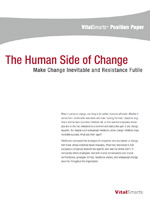
What’s the greatest threat to our still-fragile economic recovery? Dangers abound, of course. But what I currently find most ominous is the spread of a destructive idea: the view that now, less than a year into a weak recovery from the worst slump since World War II, is the time for policy makers to stop helping the jobless and start inflicting pain.
When the financial crisis first struck, most of the world’s policy makers responded appropriately, cutting interest rates and allowing deficits to rise. And by doing the right thing, by applying the lessons learned from the 1930s, they managed to limit the damage: It was terrible, but it wasn’t a second Great Depression.
Now, however, demands that governments switch from supporting their economies to punishing them have been proliferating in op-eds, speeches and reports from international organizations. Indeed, the idea that what depressed economies really need is even more suffering seems to be the new conventional wisdom, which John Kenneth Galbraith famously defined as “the ideas which are esteemed at any time for their acceptability.”
The extent to which inflicting economic pain has become the accepted thing was driven home to me by the latest report on the economic outlook from the Organization for Economic Cooperation and Development, an influential Paris-based think tank supported by the governments of the world’s advanced economies. The O.E.C.D. is a deeply cautious organization; what it says at any given time virtually defines that moment’s conventional wisdom. And what the O.E.C.D. is saying right now is that policy makers should stop promoting economic recovery and instead begin raising interest rates and slashing spending.
What’s particularly remarkable about this recommendation is that it seems disconnected not only from the real needs of the world economy, but from the organization’s own economic projections.
Thus, the O.E.C.D. declares that interest rates in the United States and other nations should rise sharply over the next year and a half, so as to head off inflation. Yet inflation is low and declining, and the O.E.C.D.’s own forecasts show no hint of an inflationary threat. So why raise rates?
The answer, as best I can make it out, is that the organization believes that we must worry about the chance that markets might start expecting inflation, even though they shouldn’t and currently don’t: We must guard against “the possibility that longer-term inflation expectations could become unanchored in the O.E.C.D. economies, contrary to what is assumed in the central projection.”
A similar argument is used to justify fiscal austerity. Both textbook economics and experience say that slashing spending when you’re still suffering from high unemployment is a really bad idea — not only does it deepen the slump, but it does little to improve the budget outlook, because much of what governments save by spending less they lose as a weaker economy depresses tax receipts. And the O.E.C.D. predicts that high unemployment will persist for years. Nonetheless, the organization demands both that governments cancel any further plans for economic stimulus and that they begin “fiscal consolidation” next year.
Why do this? Again, to give markets something they shouldn’t want and currently don’t. Right now, investors don’t seem at all worried about the solvency of the U.S. government; the interest rates on federal bonds are near historic lows. And even if markets were worried about U.S. fiscal prospects, spending cuts in the face of a depressed economy would do little to improve those prospects. But cut we must, says the O.E.C.D., because inadequate consolidation efforts “would risk adverse reactions in financial markets.”
The best summary I’ve seen of all this comes from Martin Wolf of The Financial Times, who describes the new conventional wisdom as being that “giving the markets what we think they may want in future — even though they show little sign of insisting on it now — should be the ruling idea in policy.”
Put that way, it sounds crazy. And it is. Yet it’s a view that’s spreading. And it’s already having ugly consequences. Last week conservative members of the House, invoking the new deficit fears, scaled back a bill extending aid to the long-term unemployed — and the Senate left town without acting on even the inadequate measures that remained. As a result, many American families are about to lose unemployment benefits, health insurance, or both — and as these families are forced to slash spending, they will endanger the jobs of many more.
And that’s just the beginning. More and more, conventional wisdom says that the responsible thing is to make the unemployed suffer. And while the benefits from inflicting pain are an illusion, the pain itself will be all too real.

